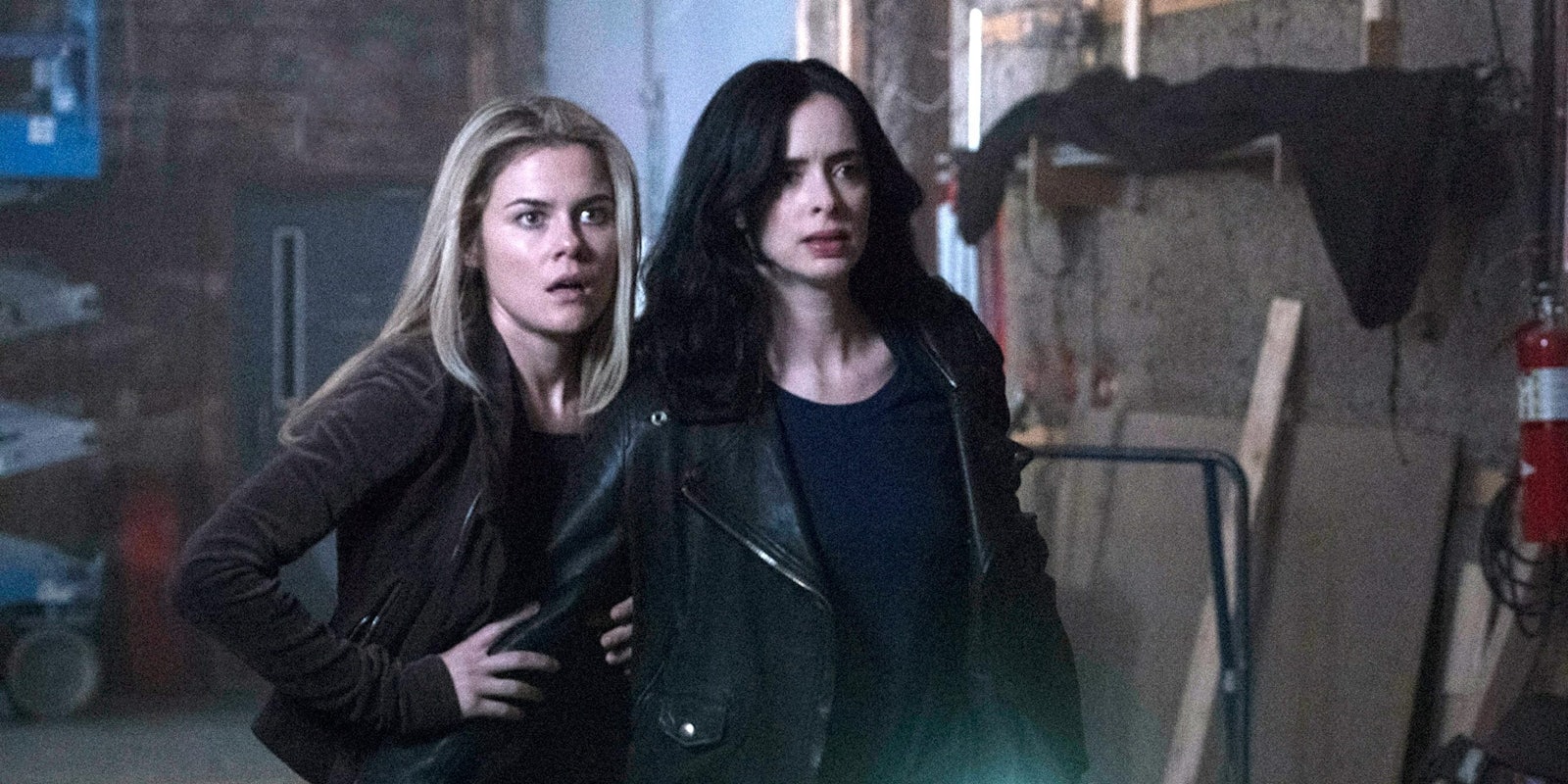Jessica Jones is widely praised for its feminist themes, using the superhero genre to explore sexism and abusive relationships. But thoughout both seasons, the show has earned one persistent criticism: It sidelines women of color.
By focusing almost exclusively on white women, Jessica Jones undercuts its central message about power dynamics and discrimination. Both seasons faced pushback for their portrayal of non-white characters, particularly the fact that women of color only receive tertiary roles. In the weeks since the release of season 2, we saw more discussion of the show’s race issues, including analysis from outlets like the Mary Sue, Bitch Media, and Syfy.
Showrunner Melissa Rosenberg tackled these issues in a March interview with Vanity Fair, picking up steam when pop culture writer ReBecca Theodore-Vachon shared quotes on Twitter this weekend. For many of the show’s detractors, Rosenberg had confirmed their suspicions about the show’s weak spot.
Dodging a question about diversity in the Jessica Jones writers’ room, she gave an awkward explanation for the lack of roles for women of color. In season 2, the two most prominent Black female characters were a detective who meets a violent end, and a sex worker who only appears for a couple of scenes.
“Yes,” said Rosenberg, when asked if the lack of racial diversity came up when creating the show. “Detective Sunday was a great character, and then it was like, ‘Someone has to die.’ And I thought, ‘Aww, shit.’ It’s killing the one woman of color.” Regarding the sex worker character, Rosenberg said “We were trying for that character… to not be Black,” but ultimately the actress in question (Adaku Ononogbo) was the best choice.
“There aren’t enough women of color in meaningful roles,” Rosenberg admitted, adding, “I think it just sort of happened that our three female leads were all white, and when we were designing the show, it just didn’t occur to me.”
That last part hits at the heart of the criticism aimed at Jessica Jones because as a show that advertises its feminist leanings, it attracts more scrutiny. No one expects Daredevil to display thoughtful intersectional feminism, but Jessica Jones proudly proclaimed its all-female staff of directors for season 2. In turn, that invites questions about who gets left out. Rosenberg’s writing team is predominantly white, and that’s reflected in what we see on-screen.
“It just didn’t occur to me” is a classic answer when discussing the representation of marginalized groups. It’s basically the same explanation for why so many creators use male characters by default. Hopefully, Rosenberg has taken the criticism onboard for next season, and we’ll see more diverse viewpoints both on-screen and behind the scenes.
H/T Vanity Fair


